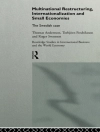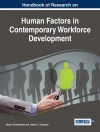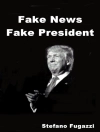The SAGE Handbook of Organizational Discourse has received the 2004 Outstanding Book Award from the Organizational Communication Division of the National Communication Association
`Organizational discourse is not a new topic but is one that has grown in significance and citations in recent years. Thanks to the new The SAGE Handbook of Organizational Discourse there is now a definitive set of up-to-the-minute resources available, by distinguished as well as emergent researchers. It should have a prominent place on all organization researchers bookshelves′ – Professor Stewart Clegg, University of Technology, Sydney
`Organizational researchers interested in discursive philosophies, methods and practices will be grateful for the much-needed background and guidance this handbook provides′ – Mary Jo Hatch, Professor, Mc Intire School of Commerce, University of Virginia. Co-author The Three Faces of Leadership: Manager, Artist, Priest (Blackwell)
`Discourse analysis has become increasingly popular in organizational studies over the past decade or two. The SAGE Handbook of Organizational Discourse will make it even more popular by helping scholars of organizations understand the range of domains, methodologies, perspectives and focal organizational phenomena available to them within this analytic approach. Beyond classifying and describing current literature in the various areas, the chapters in this important new handbook suggest new directions for research using discourse analysis, a valuable service that should help novice and experienced researchers alike′ – Jo Anne Yates, Sloan School of Management
An increasingly significant body of management literature is applying discursive forms of analysis to a range of organizational issues. This emerging arena of research is not only important in providing new insights into processes of organizing, it has also informed and influenced the broader fields of organizational and management studies.
The SAGE Handbook of Organizational Discourse is the definitive text for those with research and teaching interests in the field of organizational discourse. It provides an important overview of the domains of study, methodologies and perspectives used in research on organizational discourse. It shows how discourse analysis has moved beyond its roots in literary theory to become an important approach in the study of organizations.
The editors of the Handbook , all renowned authors and experts in this field, have provided an invaluable resource on the application, importance and relevance of discourse to organizational issues for use by tutors and researchers working in the field, as well as providing important reference material for newcomers to this area. Each chapter, written by a leading author on their subject, covers an overview of the existing literature and also frames the future of the field in ways which challenge existing preconceptions.
The SAGE Handbook of Organizational Discourse is indispensable to the teaching, study and research of organizational discourse and will enable readers to develop a level of understanding of organizations commensurate with the most recent, state of the art, theoretical developments in the broader field of organization studies.
Daftar Isi
Introduction – David Grant et al
Organizational Discourse: Exploring the Field
PART ONE: DOMAINS OF DISCOURSE
Dialogue – Kenneth J Gergen, Mary M Gergen and Frank J Barrett
Life and Death of the Organization
Narratives, Stories and Texts – Yiannis Gabriel
Corporate Rhetoric as Organizational Discourse – George Cheney et al
Tropes, Discourse and Organizing – Cliff Oswick, Linda L Putnam and Tom Keenoy
PART TWO: METHODS AND PERSPECTIVES
Organizational Language in Use – Gail T Fairhurst and Fran[ce]cois Cooren
Interaction Analysis, Conversation Analysis and Speech Act Schematics
Discourse and Identities – Susan Ainsworth and Cynthia Hardy
Interpretivist Approaches to Organizational Discourse – Loizos Th. Heracleous
Multi-Levelled, Multi-Method Approaches to Organizational Discourse – Kirsten Broadfoot, Stanley Deetz and Donald Anderson
Doing Research in Organizational Discourse – Craig Prichard, Deborah Jones and Ralph Stablein
The Importance of Researcher Context
Discourse, Power and Ideology – Dennis K Mumby
Unpacking the Critical Approach
Deconstructing Discourse – Martin Kilduff and Mihaela Kelemen
PART THREE: DISCOURSES AND ORGANIZING
Gender, Discourse and Organization – Karen Lee Ashcraft
Framing a Shifting Relationship
Discourse and Power – Cynthia Hardy and Nelson Phillips
Organizational Culture and Discourse – Mats Alvesson
Tools, Technologies and Organizational Interaction – Christian Heath, Paul Luff and Hubert Knoblauch
The Emergence of Workplace Studies
Organizational Discourse and New Media – Pablo J Boczkowski and Wanda J Orlikowski
A Practice Perspective
The Discourse of Globalization and the Globalization of Discourse – Norman Fairclough and Pete Thomas
PART FOUR: REFLECTIONS – Barbara Czarniawska, Karl E Weick and Mike Reed
Turning to Discourse – Barbara Czarniawska
A Bias for Conversation – Karl E Weick
Acting Discursively in Organizations
Getting Real about Organizational Discourse – Mike Reed
Tentang Penulis
Linda L. Putnam is a Research Professor in the Department of Communication at the University of California, Santa Barbara. Her current research interests include discourse analysis in organizations, negotiation and organizational conflict, and gender. She is the co-editor of twelve books, including The SAGE Handbook of Organizational Communication (2014), Building Theories of Organization: The Constitutive Role of Communication (2009) and the author/co-author of over 180 journal articles and book chapters. She is a Distinguished Scholar of the National Communication Association, a Fellow of the International Communication Association, and a recipient of the Distinguished Service Award from the Academy of Management.












